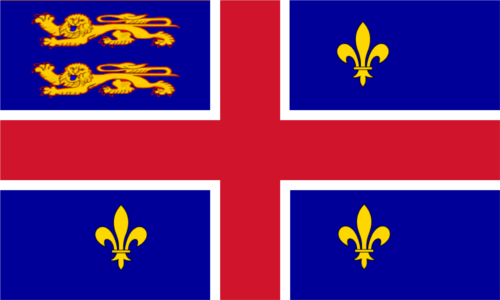The National Gazette
14th July 1888
ENGLISH DECLARATION SPURS RIOTING IN LONDRES
LONDRES - Recent legislation in the English Parliament, submitted by the English Deputy Prime Minister John Roberts, proposing both a total separation of England from France and a referendum on the status of the Monarchy, has been the cause of significant disturbance in Londres, as well as towns across the south of England. Despite achieving acclaim within English circles, the most immediate reaction in Londres is outrage. Holding banners with the Faction Anglois slogan 'L'Angleterre est Française!' and displaying the Plantagenet flag with pride, protesters angrily rebuked a proposal many outside of England have labelled 'tone deaf' and 'intentionally antagonistic' towards the Anglois, who had fought for two years specifically to avoid annexation into an independent England. Protesters then attacked businesses with English names and attempted to storm a hotel where English delegates were staying for discussion with the Faction Anglois, before being chased off by armed police, leaving five protesters dead. Whether the English Parliament will bend to this pressure remains to be seen, but what is clear is that the fragile truce in England may already be close to breaking point. Faction Anglois soldiers in East Anglia have already begun to prepare for a recommencement of hostilities, which they see as inevitable, even without permission from Londres itself. However, some Faction Anglois leaders are taking the path of reconciliation, such as Capitane Jaques Smith who stated earlier this week [...]14th July 1888
ENGLISH DECLARATION SPURS RIOTING IN LONDRES
___

Déclaration du Gouvernement de l'Angleterre et de la France
15th July 1888
The Premier Jean-Paul Blanc has called for a conference, in the town of Laon, to discuss the future of the Anglo-French nation, with particular reference to:
- A free and fair election for the Estates-General, the date on which this election be held, and assurances that it will not be subject to intimidation and corruption.
- Terms of continued peace to prevent the outbreak of further hostilities.
- The treatment of members of the Lemarque Ministry and prosecution for their crimes under the laws of the Dual Monarchy.
- The future of the internal democracy of the Dual Monarchy, including the future relationship between the constituent nations of the Dual Monarchy and their rights to assembly and self-governance - with particular reference to the Kingdom of England.
- The status of King Henri XI, the Monarchy, and the constitution of the Dual Monarchy.
- The relationship between the Dual Monarchy and the Republic in Ireland.
- Jean-Paul Blanc
Premier of the Dual Monarchy of England and France
Last edited:


